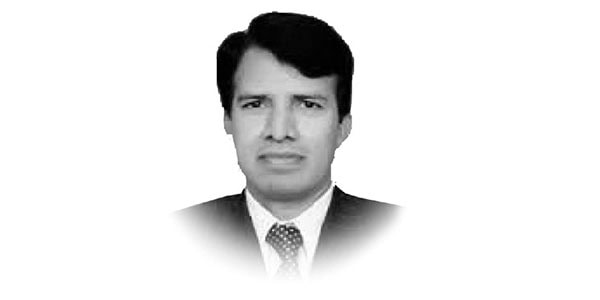Pak-Iran ties: Developing a broader spectrum
In order to strengthen and further reinforce the historical relationship between Pakistan and Iran, there have been high levels visits of the top officials and political leadership of both countries.
Chairman Joint Chiefs of Staff Committee (CJCSC) General Nadeem Raza, has just concluded his visit of Tehran on July 3, 2022.
He has in-depth meetings with Iranian military officials and key political leaders of Iran. During his visit he met with Iranian President, Sayyid Ebrahim Raisol-Sadati in Tehran.
As per Inter Services Public Relations (ISPR), the visit of General Raza has been very successful from all aspects.
It was agreed by both sides that, Islamabad and Tehran would “initiate meaningful and long-lasting security and defence cooperation between the two countries”.
Owing to the rapidly changing regional and international scenario, this is the most important aspect, Pakistan and Iran must concentrate, cooperate and pursue on long-term basis.
There is a dire need that, Pakistan and Iran must focus on the strategic issues for the larger regional cooperation at regional and international level.
During his meeting with Iran’s military commanders, it was agreed that, Pak-Iran border should be converted into “Borders of Peace and Friendship”.
They discussed all measures and CBMs needed for the enhancement of military engagements, security cooperation and forging deeper ties between militaries of both states.
Earlier, Pakistani Foreign Minister Mr Bilawal Zardari visited Tehran in mid June 2022 and had a meeting with key officials of Iran, including Iran’s President.
During this meeting both sides pledged to resolve the long-standing issue of bilateral trade between Pakistan and Iran.
The non-operationalisation of barter trade between Pakistan and Iran has been a major issue between both states for decades now.
The visit of Pakistani foreign minister paved the way for formalisation of the cross-border exchanges and trade by opening new and more trade routes by opening of new border crossings all along the Pak-Iran border.
Indeed, there is a need that, Pak-Iran border must be converted into an economic and academic zone by establishing economic zones and opening institutions of higher educations.
Such a process will “greatly help in improving the livelihood and welfare of the people in the border areas.
” Such an initiative would reduce and subsequently undo three key activities; a) militant activities on either side of the border, b) illegal border trade and c) the smuggling of drugs and other prohibited items on either side of the border.
These three grey areas have created misunderstanding between Islamabad and Tehran for decades.
A number of areas were identified for cooperation and collaboration during this interaction of foreign ministers and relevant officials.
These areas of cooperation include; ‘bilateral trade, investments, connectivity, border management, facilitation for pilgrims, cultural and educational cooperation, and enhancing people-to-people exchanges.
’ Energy cooperation is one key area which Pakistan and Iran must debate and devise a mechanism for cooperation.
It should not be restricted to the import of electricity and food items from Iran to the bordering areas of Pakistan.
The energy cooperation must extend to supply of Iranian oil and gas to Pakistan which will cost very less to Pakistan as compared to current arrangements.
In this regards Iran has always been forthcoming to cooperate but, the red-tapism in Pakistan has always created hurdles in the materialization of this most viable option.
Traditionally, Pakistan and Iran share geographical contiguity, religious affinity, culture similarities and civilizational closeness.
For centuries, the area now constituting Pakistan remained the hub of the Indo-Persian civilization that produced remarkable works of art, poetry, literature and great intellect.
After the creation of Pakistan, the natural affinity and closeness shared by these two neighbours was enhanced further and mutual ties of both flourished to new heights.
Pakistani frontiers with Iran have always been peaceful, safe and secure. Iran was the first country which recognized Pakistan upon its emergence as an independent country in 1947.
Indeed, there have been historical linkages between the people of Pakistan and Iran. Centuries ago Iranian migrants and Islamic preachers left long lasting impression on the people and civilization of Indian Sub-continent.
Pakistan along with Iran and Turkey established Regional Cooperation for Development (RCD), an inter-governmental organization for socio-economic development in the member countries in 1964.
The organization was renamed as Economic Cooperation Organization (ECO) in 1985 and its membership increased to ten in early 1990s with the integration of Central Asian States, Azerbaijan and Afghanistan.
Following the Islamic revolution in Iran in 1979, Pakistan was the first country, which recognized Revolutionary Iranian Government.
Besides sending a high-level delegation under Foreign Minister, then President, General Zia ul Haq himself, visited Iran as a good will gesture in 1980 and 1981.
During Iran-Iraq war, Pakistan made hectic efforts to negotiate a deal between the two Islamic countries to end the war.
Pakistan whole-heartedly supported Iranian viewpoint on the issue of its nuclear programme and maintained that Iran has the right to develop its nuclear programme within the ambit of NPT.
Earlier in May 1998, Iran supported testing of nuclear weapons by Pakistan, after Indian nuclear tests.
In order to strengthen and reinforce existing relationship between Pakistan and Iran, there is a need to formulate long-term strategies in diverse areas.
To begin with, Islamabad and Tehran should constitute multiple working groups comprising of technocrats, members of business community, academics and member of think-tanks with two broad mandates (a identification of areas for bilateral cooperation and b) formulating broad strategies for the implementation.
Such an arrangement will act as base for further establishing a broader spectrum of Pak-Iran bilateral relations.
— The writer is Professor of Politics and IR at International Islamic University, Islamabad.







